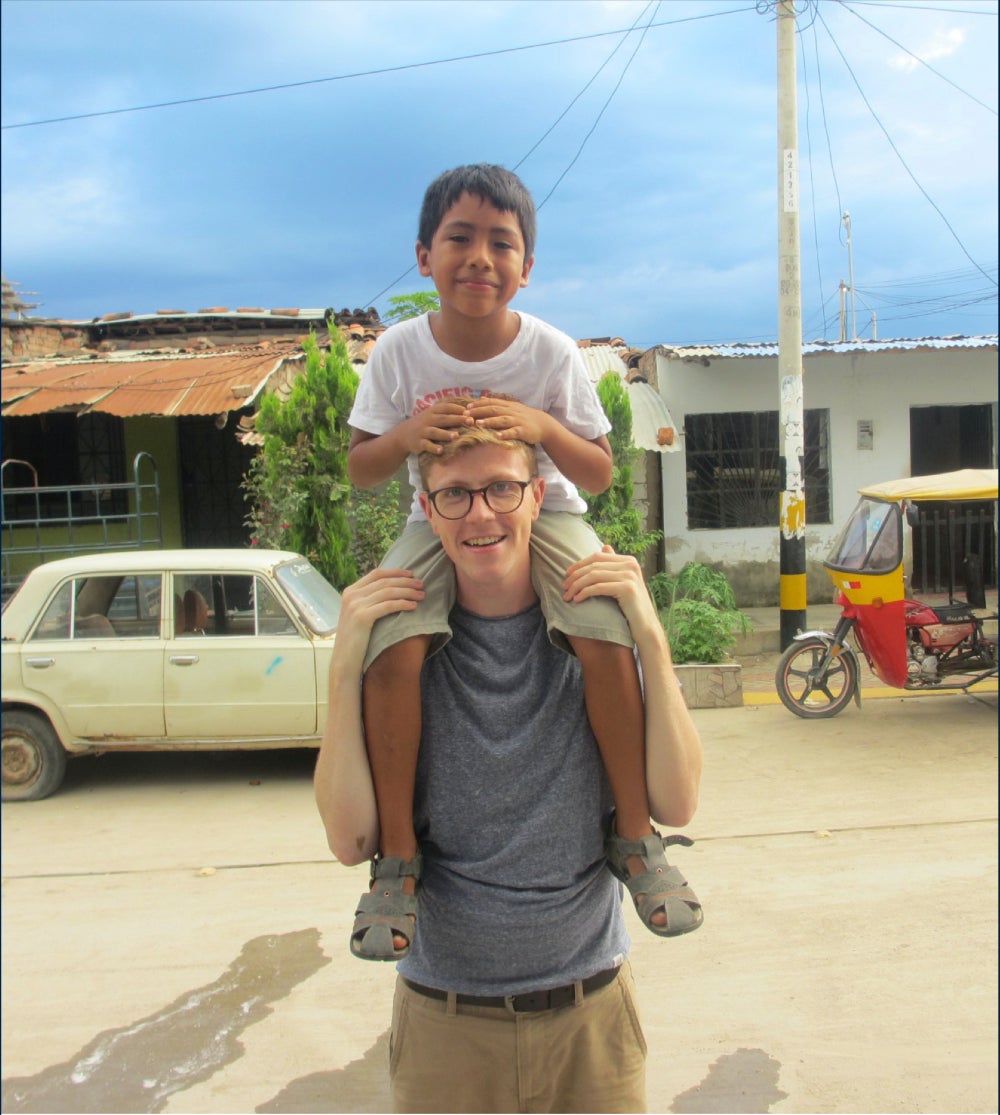Adjusting to daily life as a Peace Corp volunteer is no small feat–it requires high-level communication, foreign language, and intercultural skills; and the ability to adapt to the unique needs of a new community.
Kevin Drumm ’15 accomplished this not just once, but twice during his Peace Corps service.
After completing the Spanish International Engineering Program at URI, he applied to the Peace Corps as a health sector volunteer and was assigned to Piura, in Northwestern Peru. The region is made up of varied subtropical topography; coastline, deserts, valleys, and dry equatorial forests. It also encompasses diverse cultural influences from Spanish, Quichua, and Afro-Peruvian cultures with rich traditions in poetry, dance, and cuisine.
Drumm worked closely with members of the local community in Piura to learn about their needs and find ways to contribute. Drawing from his strong engineering background, Drumm devised ways to improve access clean drinking water and provide better sanitation.
But halfway through his two year service the El Niño phenomenon brought significant flooding to the region and Drumm was evacuated and reassigned.
“I had been helping people in the community before the flood, but after the flood was when they most needed me and I had to leave.” Drumm says. “As a volunteer, you establish goals and you want to complete your work, but you’re there to help them with anything they need. It was hard to leave my Peace Corps family.”
His new assignment brought him to Huancabamba, located about seven hours away in the eastern mountains where, once again, he adjusted to a new community and found new projects. While his Peace Corps experience was unique, Drumm sees a clear benefit; “Most volunteers don’t get the opportunity to see so much of their host country,” he says.
Since his time in the Peace Corps, Drum now helps students from around the world adapt to change, get acclimated to a new culture, and acquire the skills for international development work at the Harvard Kennedy School.

